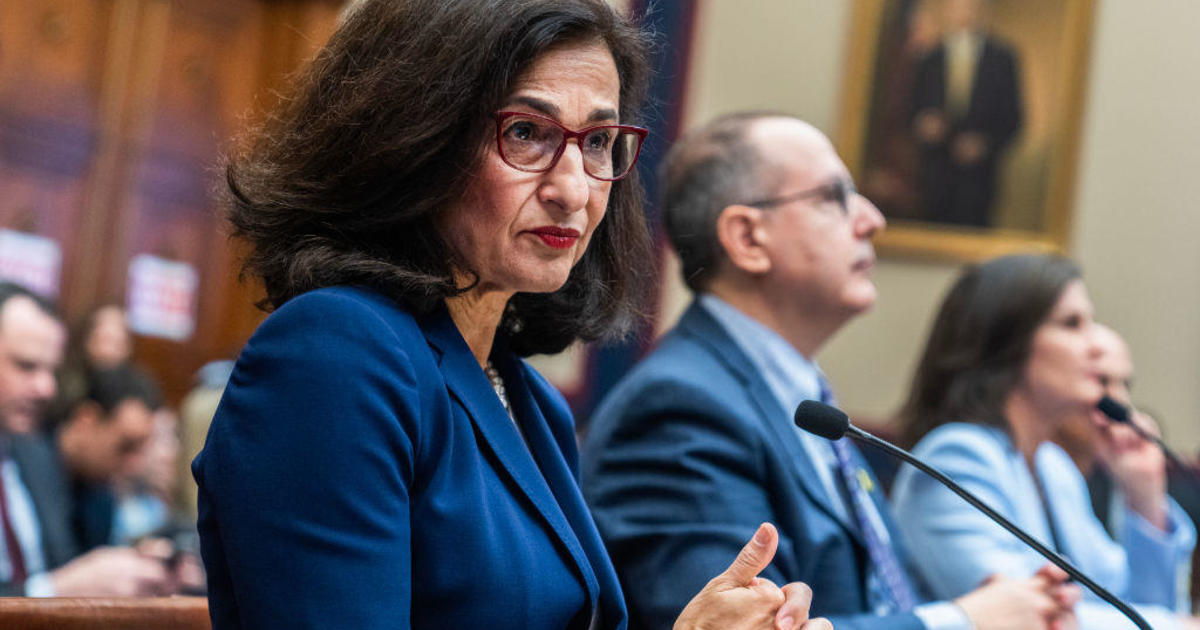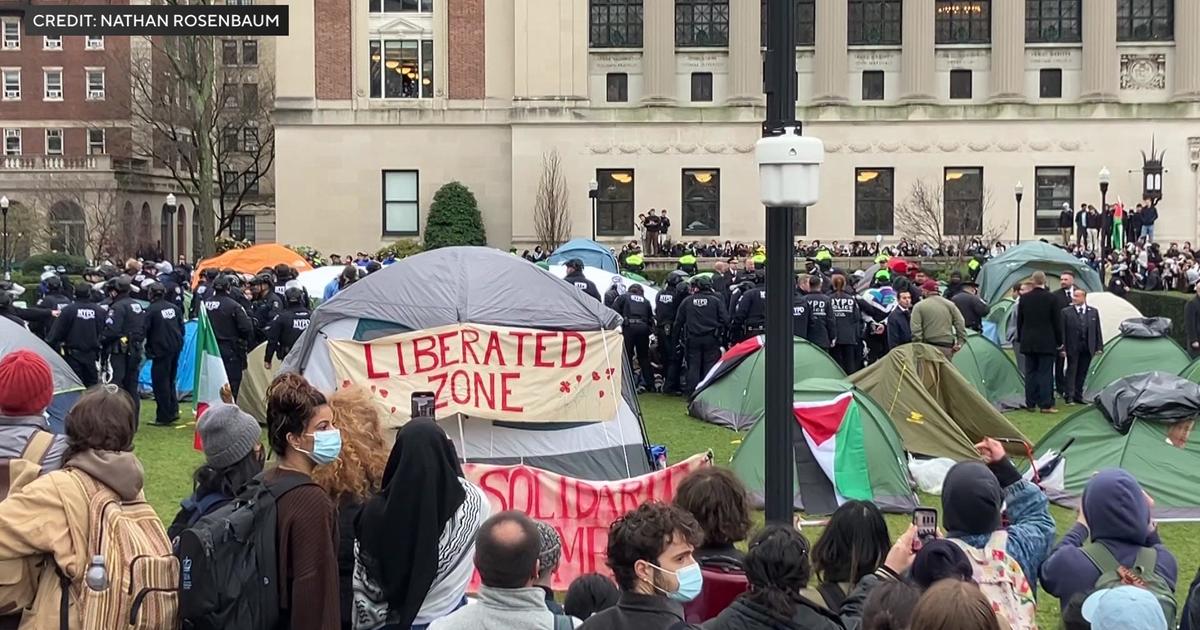Congress Votes To End Government Shutdown, Avert Default
Updated 12:35 a.m.: President Barack Obama signs budget deal.
WASHINGTON (CBSNewYork/AP) -- Up against a deadline, Congress passed and sent a waiting President Barack Obama legislation late Wednesday night to avoid a threatened national default and end the 16-day partial government shutdown, the culmination of an epic political drama that placed the U.S. economy at risk.
The Senate voted first, a bipartisan 81-18 at mid-evening. That cleared the way for a final 285-144 vote in the Republican-controlled House about two hours later on the legislation, which hewed strictly to the terms Obama laid down when the twin crises erupted more than three weeks ago.
The legislation would permit the Treasury to borrow normally through Feb. 7 or perhaps a month longer, and fund the government through Jan. 15. More than 2 million federal workers would be paid -- those who had remained on the job and those who had been furloughed.
WEB EXTRA: BUDGET BATTLE PHOTO GALLERY
At the White House, Obama hailed the Senate's vote and encouraged the House to follow suit. Once the measure reaches his desk, he said, "I will sign it immediately. We'll begin reopening our government immediately and we can begin to lift this cloud of uncertainty from our businesses and the American people."
The president also had stern words for lawmakers.
"We've got to get out of the habit of governing by crisis," Obama said. "And my hope and expectation is everybody has learned that there's no reason why we can't work on the issues at hand."
As debate began in the House, Rep. Harold Rogers (R-Ky.) said, "After two long weeks, it is time to end this government shutdown. It's time to take the threat of default off the table. It's time to restore some sanity to this place."
The stock market surged higher at the prospect of an end to the crisis that also had threatened to shake confidence in the U.S. economy overseas.
Republicans conceded defeat after a long struggle. "We fought the good fight. We just didn't win," conceded House Speaker John Boehner (R-Ohio) as lawmakers lined up to vote on a bill that includes nothing for GOP lawmakers who had demand to eradicate or scale back Obama's signature health care overhaul.
"The compromise we reached will provide our economy with the stability it desperately needs," said Senate Majority Leader Harry Reid (D-Nev.), declaring that the nation "came to the brink of disaster" before sealing an agreement.
Senate Republican leader Mitch McConnell (R-Ky.), who negotiated the deal with Reid, emphasized that it preserved a round of spending cuts negotiated two years ago with Obama and Democrats. As a result, he said, "government spending has declined for two years in a row" for the first time since the Korean War. "And we're not going back on this agreement," he added.
Only a temporary truce, the measure set a time frame of early next winter for the next likely clash between Obama and the Republicans over spending and borrowing.
But for now, government was lurching back to life. In one example, officials met to discuss plans for gearing back up at the Department of Housing and Urban Development, where 307 employees remained at work during the partial shutdown and more than 8,000 were furloughed.
"We have finally achieved our goal, the same place where we started, but at a cost," Sen. Charles Schumer (D-N.Y.) said on the Senate floor.
Rep. Peter King (R-N.Y.) told CBS 2 that Republicans and Democrats must find a way to co-exist.
"The Democrats control the Senate. The Republicans clearly control the House. So we have a divided a government," King said. "And it's important for both parties to realize they have to find a way to work together. It can be done without sacrificing principal."
After weeks of gridlock, the measure had support from the White House, most -- if not all -- Democrats in Congress and many Republicans fearful of the economic impact of a default.
Boehner and the rest of the top GOP leadership told their rank and file they would vote for the measure, and there was little or no doubt it would pass both houses and reach the White House in time for Obama's signature before the administration's 11:59 p.m. Oct. 17 deadline.
That was when Treasury Secretary Jacob Lew said the government would reach the current $16.7 trillion debt limit and could no longer borrow to meet its obligations.
Tea party-aligned lawmakers who triggered the shutdown that began on Oct. 1 said they would vote against the legislation. Significantly, though, Sen. Ted Cruz (R-Texas) and others agreed not to use the Senate's cumbersome 18th-century rules to slow the bill's progress.
In remarks on the Senate floor, Cruz said the measure was "a terrible deal" and criticized fellow Republicans for lining up behind it.
"This deal kicks the can down the road," Cruz said. "It allows yet more debt, more deficits, more spending."
McConnell made no mention of the polls showing that the shutdown and flirtation with default have sent Republicans' public approval plummeting and have left the party badly split nationally as well as in his home state of Kentucky. He received a prompt reminder, though.
"When the stakes are highest Mitch McConnell can always be counted on to sell out conservatives," said Matt Bevin, who is challenging the party leader from the right in a 2014 election primary.
More broadly, national tea party groups and their allies underscored the internal divide. The Club for Growth urged lawmakers to vote against the congressional measure, and said it would factor in the organization's decision when it decides which candidates to support in midterm elections next year.
"There are no significant changes to Obamacare, nothing on the other major entitlements that are racked with trillions in unfunded liabilities, and no meaningful spending cuts either. If this bill passes, Congress will kick the can down the road, yet again," the group said.
The bill makes one change to the health care law. It would require those seeking subsidies for insurance coverage to verify their income.
Even so, support for Boehner appeared solid inside his fractious rank and file. "There are no plots, plans or rumblings that I know of. And I was part of one in January, so I'd probably be on the whip list for that," said Rep. Thomas Massie of Kentucky.
Simplicity at the end, there was next to nothing in the agreement beyond authorization for the Treasury to resume borrowing and funding for the government to reopen.
House and Senate negotiators are to meet this fall to see if progress is possible on a broad deficit-reduction compromise of the type that has proved elusive in the current era of divided government.
You May Also Be Interested In These Stories
(TM and © Copyright 2013 CBS Radio Inc. and its relevant subsidiaries. CBS RADIO and EYE Logo TM and Copyright 2013 CBS Broadcasting Inc. Used under license. All Rights Reserved. This material may not be published, broadcast, rewritten, or redistributed. The Associated Press contributed to this report.)



